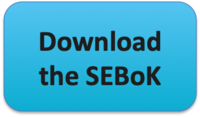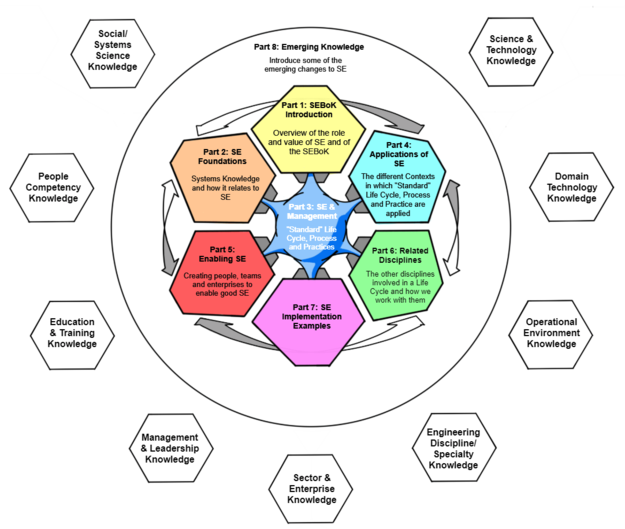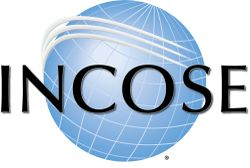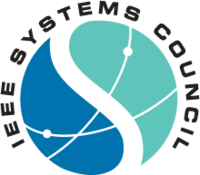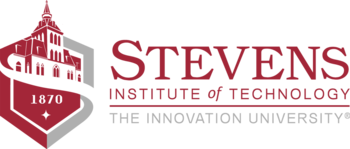Difference between revisions of "Guide to the Systems Engineering Body of Knowledge (SEBoK)"
| (69 intermediate revisions by 6 users not shown) | |||
| Line 1: | Line 1: | ||
__NOTOC__ | __NOTOC__ | ||
| − | |||
| − | |||
| − | |||
| − | |||
| − | + | <center>'''On behalf of the [[BKCASE Governance and Editorial Board#Editorial Board|Editorial Board]]<nowiki/>, the [[BKCASE Governance and Editorial Board#BKCASE Governing Board|Governing Board]], and our authors and sponsors, welcome to | |
| − | |||
| − | '''Systems engineering''' is an interdisciplinary approach and means to enable the full life cycle of successful {{Term|Product System (glossary)|product}}, {{Term|Service_System_(glossary)|service}} and {{Term|Enterprise_System_(glossary)|enterprise}} systems. It includes problem discovery and formulation, solution definition and realization, and operational use, sustainment, and disposal. It can be applied to single problem situations or to the management of multiple interventions in commercial or public enterprises. Those new to systems engineering can find introductory articles which provide an [[Systems Engineering Overview|overview of systems engineering]], place it in [[Systems Engineering: Historic and Future Challenges|historical context]], and discuss its [[Economic Value of Systems Engineering|economic value]] in [[SEBoK Introduction|Part 1]] of this body of knowledge. | + | '''SEBoK version 2.9.'''</center> |
| + | <center>Released 20 November 2023</center> | ||
| + | |||
| + | == Welcome to SEBoK v. 2.9 == | ||
| + | <div style="text-align:justify"> | ||
| + | The SEBoK provides a guide to the [[Primary References|key knowledge sources and references]] of {{Term|Systems Engineering (glossary)|systems engineering}} organized and explained to assist a wide variety of individuals. It is a living product, accepting community input continuously, with regular refreshes and updates. The SEBoK is not a compendium but instead references existing literature. | ||
| + | |||
| + | '''Systems engineering''' is an interdisciplinary approach and means to enable the full life cycle of successful {{Term|Product System (glossary)|product}}, {{Term|Service_System_(glossary)|service}} and {{Term|Enterprise_System_(glossary)|enterprise}} systems. It includes problem discovery and formulation, solution definition and realization, and operational use, sustainment, and disposal. It can be applied to single-problem situations or to the management of multiple interventions in commercial or public enterprises. Those new to systems engineering can find introductory articles which provide an [[Systems Engineering Overview|overview of systems engineering]], place it in [[Systems Engineering: Historic and Future Challenges|historical context]], and discuss its [[Economic Value of Systems Engineering|economic value]] in [[SEBoK Introduction|Part 1]] of this body of knowledge.</div> | ||
==What's New?== | ==What's New?== | ||
| − | [[File:DownloadtheSEBoK.png| | + | [[File:DownloadtheSEBoK.png|200px|right|link={{filepath:Guide_to_the_Systems_Engineering_Body_of_Knowledge_v2.9.pdf}}]] |
A few things to look forward to in the latest update: | A few things to look forward to in the latest update: | ||
| − | * | + | *[[Governance and Editorial Boards]] changes including a new Editor-in-Chief and Managing Editor |
| − | * | + | *A new article on [[Reverse Engineering a UAV Prototype using Agile Practices]] |
| − | + | *A new article on [[System Security]] that replaces the one found in SEBoK 2.8 | |
| − | * | + | *A new article on the [[An Overview of the SWEBOK Guide]] that replaces the one found in SEBoK 2.8 |
| − | * | + | *An updated article on Loss Driven Systems Engineering, [[A Framework for Viewing Quality Attributes from the Lens of Loss]] |
| − | * | + | *An updated article on [[System Resilience]] |
| − | + | *A transition from the use cases originally published in SEBoK v. 1.0 to more persona-driven guidance for different types of [[SEBoK Users and Uses|users]] | |
| − | * | + | *Minor updates to articles throughout the SEBoK |
==SEBoK Organization== | ==SEBoK Organization== | ||
| + | |||
{{Structure|625px|'''Figure 1. Scope of SEBoK: Parts and related knowledge.''' Click on a Part to navigate to it. (SEBoK Original).|right}} | {{Structure|625px|'''Figure 1. Scope of SEBoK: Parts and related knowledge.''' Click on a Part to navigate to it. (SEBoK Original).|right}} | ||
| Line 38: | Line 41: | ||
<center> | <center> | ||
{| | {| | ||
| − | |+ ''' | + | |+ '''SEBoK Stewards''' |
|- | |- | ||
| style="background-color: #ffffff" |[[File:INCOSE-logo-2016.jpg|250px|center|International Council on Systems Engineering|link=http://www.incose.org]] | | style="background-color: #ffffff" |[[File:INCOSE-logo-2016.jpg|250px|center|International Council on Systems Engineering|link=http://www.incose.org]] | ||
| Line 48: | Line 51: | ||
</center> | </center> | ||
| − | '''Contact us at [mailto:sebok@incose. | + | '''Contact us at [mailto:sebok@incose.net sebok@incose.net].''' |
---- | ---- | ||
| Line 57: | Line 60: | ||
}} | }} | ||
| − | <center>'''SEBoK v. 2. | + | <center>'''SEBoK v. 2.9, released 20 November 2023'''</center> |
Latest revision as of 22:06, 19 November 2023
Welcome to SEBoK v. 2.9
The SEBoK provides a guide to the key knowledge sources and references of systems engineering organized and explained to assist a wide variety of individuals. It is a living product, accepting community input continuously, with regular refreshes and updates. The SEBoK is not a compendium but instead references existing literature.
Systems engineering is an interdisciplinary approach and means to enable the full life cycle of successful product, service and enterprise systems. It includes problem discovery and formulation, solution definition and realization, and operational use, sustainment, and disposal. It can be applied to single-problem situations or to the management of multiple interventions in commercial or public enterprises. Those new to systems engineering can find introductory articles which provide an overview of systems engineering, place it in historical context, and discuss its economic value in Part 1 of this body of knowledge.What's New?
A few things to look forward to in the latest update:
- Governance and Editorial Boards changes including a new Editor-in-Chief and Managing Editor
- A new article on Reverse Engineering a UAV Prototype using Agile Practices
- A new article on System Security that replaces the one found in SEBoK 2.8
- A new article on the An Overview of the SWEBOK Guide that replaces the one found in SEBoK 2.8
- An updated article on Loss Driven Systems Engineering, A Framework for Viewing Quality Attributes from the Lens of Loss
- An updated article on System Resilience
- A transition from the use cases originally published in SEBoK v. 1.0 to more persona-driven guidance for different types of users
- Minor updates to articles throughout the SEBoK
SEBoK Organization
The SEBoK is a guide to the broad scope of SE-related knowledge. The core of this is tested and proven knowledge that has been developed through practice, documented, reviewed, and discussed by the SE community. In addition, the SEBoK also covers some of the emerging aspects of SE practice, such as Systems of Systems, Agile Life Cycle approaches and Model Based Systems Engineering (MBSE).
Systems engineering has its roots in the fundamentals, principles, and models of foundational systems sciences, and associated management and engineering sciences. It is effective systems engineering processes are applied within a managed life cycle working with a number of other management, engineering, and specialist disciplines. While traditionally applied to product development, systems engineering can also be applied to service and enterprise systems. As systems engineering is a collaborative approach, working with other engineering and management disciplines and specialties, it relies on competencies at the individual and team levels and appropriate structure and governance at organizational levels.
Starting from this basic view of the scope of knowledge relevant to SE, the SEBoK is organized into 8 parts as shown in Figure 1. Click on Figure 1 to navigate to any part of the SEBoK.
The SEBoK includes a glossary and a list of recommended references. The main content of the SEBoK can be downloaded as a PDF for offline access if desired.
SEBoK Governance
The SEBoK is overseen by the Governing Board appointed by the stewards, who oversee the SEBoK Editor-in-Chief and Editorial Board. The stewards contribute resources to manage the SEBoK wiki, support new releases, and encourage SEBoK adoption. Volunteer authors from the worldwide SE community continue to propose and create new content. Other volunteers review that new content. The stewards are INCOSE, the IEEE Systems Council, and Stevens Institute of Technology.
Contact us at sebok@incose.net.
